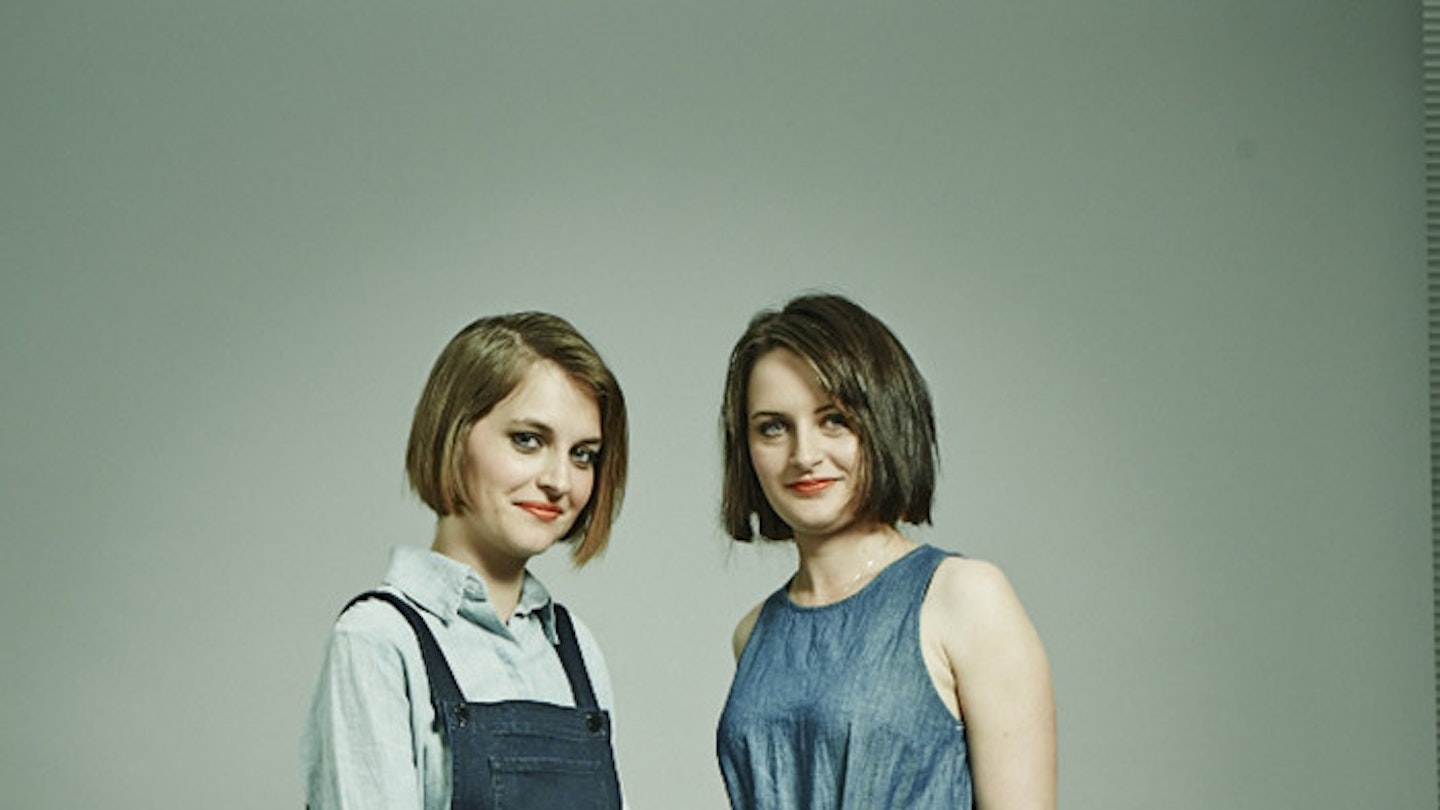Random people sending you mail on LinkedIn isn't anything out of the ordinary. But last October, I received a message from someone I didn't know that was more enticing than most. It was from the head of development at a television production company, contacting me about a show they were working on. The idea was finding everyday people who looked like each other - so-called ‘twin strangers’. “I was reading up on your search for a double," he wrote, "and thought it might be interesting to have a chat”. Not long after that, I was - improbably - sat in a hotel room in front of him and his cameraman, recording my half of the film about finding Lauren, a film that, as I write, has had more than 282,000 views.
Let’s rewind to 17 November 2011, the day I started searching for my doppelgänger. I was working as a freelance journalist in London and came up with an idea for a social experiment for a magazine feature. I wanted to see if it was possible to track down a complete stranger who looked like me, by using social media, word of mouth... or really, by any means possible. The idea that we could all have an unrelated clone going about their day-to-day life, living it up in Milton Keynes or Outer Mongolia, fascinated me. I was looking for an everyday person as opposed to a celebrity (unless of course a familiar face was my best match), who also happened to be twentysomething and look like me. If this person existed and I could find her, I wanted to find out if the similarities could go deeper than our aesthetics. In my case, a fellow creative with a similar mixed background (my mum is British, my dad is Lebanese), whose views on the world corresponded with my own would be more than a promising start.
The first thing I did was create a blog explaining what I was doing, why and some all-important ground rules. But this wasn't my only step in my quest to find my double. I also made a dodgy YouTube video with my sister (in which we both seem drunk), set up a Facebook page, met a facial recognition expert for a BBC video and article about my project, which sent my search viral and led to press coverage and interviews with radio stations around the world. I even contacted London’s Lebanese Society because, as I mentioned, I’m British-Lebanese (they never replied, probably because they though I was bonkers. See: embarrassing YouTube video with my sister). I took to Twitter too, targeting high-profile tweeters and using #doyoulooklikeme as a hashtag in a bid to get my search trending. Comedian Dom Joly and writers Caitlin Moran, India Knight and Jill Mansell, helped spread the word, which led to lookalike suggestions (admittedly, largely celebrities like Natalie Portman, Helena Bonham-Carter and Keira Knightley). I shared #doyoulooklikeme on my Facebook timeline the day I started the project, and I received my first genuinely promising suggestion the very next day: Lauren, a Birmingham-based filmmaker, from a guy we’d both worked with in the past (weird). He had even told Lauren at the time that she looked just like me.
Soon after, Lauren and I became Facebook friends. Browsing her pictures, I could certainly see our likeness. And the fact she was a fellow creative, working as a film-maker, made it all the more exciting. We finally met on 27 August 2013. We got on really well – our biggest similarities seeming to revolve around our careers, friendly, open, easy-going nature and sartorial choices – and we captured our meeting with plenty of pictures in which she looks a lot like the younger sister I don't have.
We stay in touch, mostly over Facebook and usually about ‘double developments’, such as the recent campaign by three friends to find their ‘twin strangers’ anywhere in the world within 28 days, which we’ve been involved in (and is why we were filmed to tell ‘our story’). While looking alike is the common thread that will probably always keep Lauren and I connected (although I’m not entirely convinced that Lauren's my closest living clone – if you think you're a better match, please do get in touch –) I consider myself a lifelong doppelgänger detective and I’m apparently not alone. In fact, what's stood out to me the most during this experiment is not only the staggering number of strangers who are compelled to ask for my help to find their doppelgänger, but also the significant number of people around the world are also trying to find theirs. On the whole, these people don’t appear to be motivated by narcissism. It seems there's an innate curiosity to come face-to-face with someone who faces the world as they do, to determine whether we really are as individual as we think we are, and a very real desire to connect with a stranger who just happens to look like you do. Maybe this, rather poignantly, reflects a greater universal need for meaningful connections in an increasingly fast-paced, alienating, screen-heavy society, in which selfie sticks are breeding quicker than you can say “Cheeeeese”. Then again, maybe it is just about their Instagram profiles…
By Sophie Robehmed
